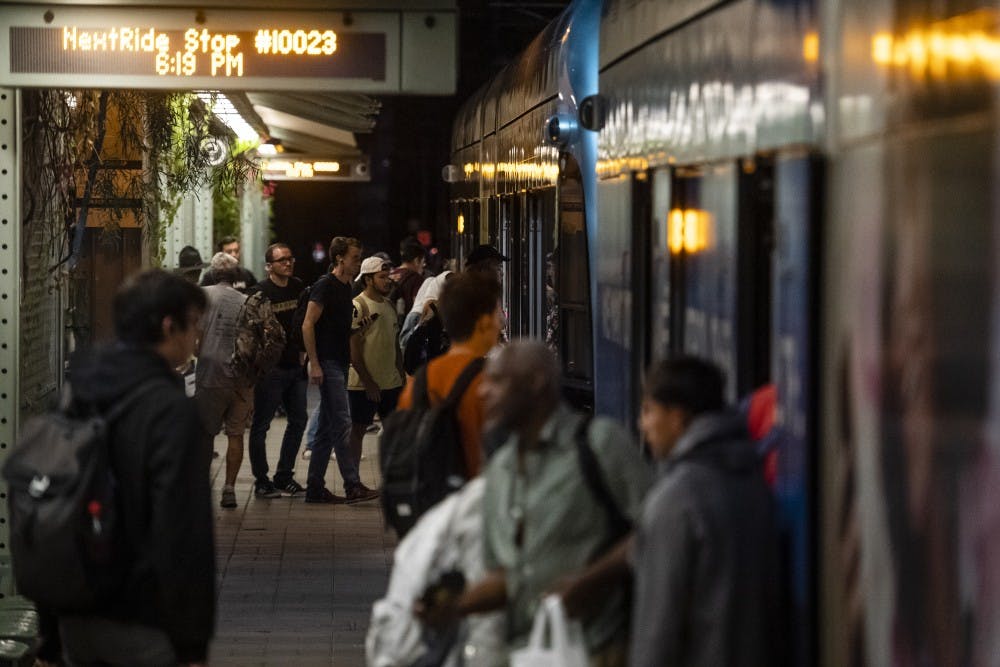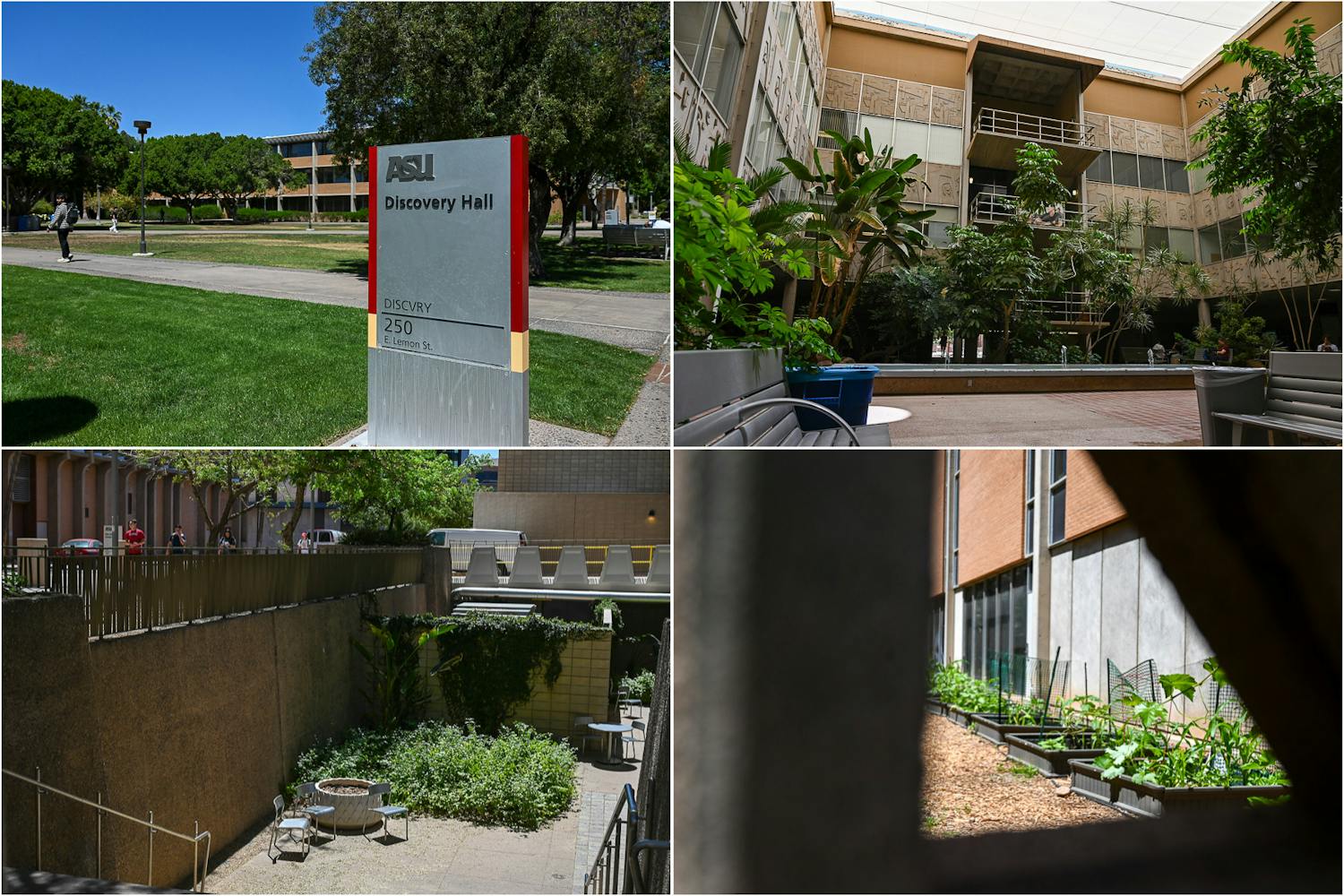ASU's Campus Sustainability Month is encouraging students to "go green" by using bikes, buses and boards through the end of October and part of November.
ASU will host a Day Without Cars on Thursday to encourage students to think about their carbon emissions, alternative modes of transportation and sustainability as part of the Campus Sustainability Month.
In addition to Day Without Cars, the University is putting on events during October and the first week of November. Some events include encouraging students to use Volunteer Match, which helps students find organizations to work with, as well as sustainability challenges.
This year, ASU decided to move Day Without Cars, which was formerly in May to coincide with National Bike Month, to October because of heat-related issues. Parking and Transit Services is trying to incentivize students to ride their bikes now while the weather is cooler, Porter said.
According to the U.S. Environmental Protective Agency, almost 29% of greenhouse gas emissions by the economic sector in 2017 are due to transportation.
JC Porter, assistant director of Parking and Transit Services, said that days dedicated to incentivizing people to use alternative modes of transportation have existed for decades.
“Trying to reduce (emissions) is going to be a really big push, but the idea is we have to start somewhere," Porter said. "We got to start small.”
Porter said the goal is to start with one day a year without cars and then gradually move to make a day without cars into a once or twice a week routine.
Casey Rapacki, the president of Campus Student Sustainability Initiatives and a junior studying sustainability, said that using alternative modes of transportation could reduce the amount of greenhouse gases in the atmosphere.
“There's power in numbers … I think that any effort helps,” Rapacki said.
Porter said that researching what modes of transportation students use most, and how their proximity to campus affects their transportation choices, is important for understanding how students can be incentivized to use other modes of transportation.
For example, creating improved infrastructure with safer bike lanes could influence students to ride their bikes more often, Porter said.
“I think that the biggest factor is convenience — it's what gets me from point A to point B as quickly as I can,” Porter said. “Time is very valuable, and we're all trying to save as much time as we can.”
Porter said the growth of Phoenix has made reducing traffic difficult, but that it is always possible for people to make choices that can help improve air quality and lower traffic congestion.
A Day Without Cars, as well as Campus Sustainability Month, is a time where students can get excited about sustainability and sustainability organizations on campus, Rapacki said.
Student organizations and ASU organizations, like Zero Waste and Entrepreneurship + Innovation, work to organize events that encourage students to think about how they can participate in climate action.
The Clinton Global Initiative University created an application with Entrepreneurship + Innovation for ASU students in the beginning of November. Students are "challenged to make new, specific and measurable initiatives that address pressing world challenges," according to the Campus Sustainability Month webpage.
"ASU Campus Sustainability Month is not only focused on raising awareness for sustainability, but also encourages personal action," said Lauren Dunning, senior program manager of Entrepreneurship + Innovation, in an email. "In this way, CGI U and ASU Campus Sustainability Month are directly aligned in encourage individual and community action."
Dunning wrote that "students have new ideas, different perspectives and the opportunity to improve upon existing systems."
Mick Dalrymple, director of University Sustainability Practices, said in an email that campus sustainability month can help students think about their daily decisions regarding sustainability.
"Overall, it is about a way of approaching daily decisions and actions in which you think about the impacts on the environment and on other people of what you are doing and you try to maximize the positive and minimize the negative," he said.
"To be a Sun Devil is to be sustainable," Dalrymple said.
Rapacki said everyone helps everyone out with sustainable projects and events, especially within the School of Sustainability.
"Advisors and counselors, and even professors and students try to make sustainability interconnected,” Rapacki said.
Some events this month by Campus Student Sustainability Initiatives are planting trees and cleaning up trash at Papago Park on Oct. 26.
Christopher Wilcox, treasurer for Campus Student Sustainability Initiatives and junior studying business sustainability and supply chain management, said connecting to people and serving others is what makes sustainability efforts and events important to him.
“It always feels good to go out and volunteer your time,” Wilcox said. “Once you show up to one event, you're hooked on it.”
Reach the reporter at tmlane3@asu.edu and follow @tmflane on Twitter.
Like The State Press on Facebook and follow @statepress on Twitter.




